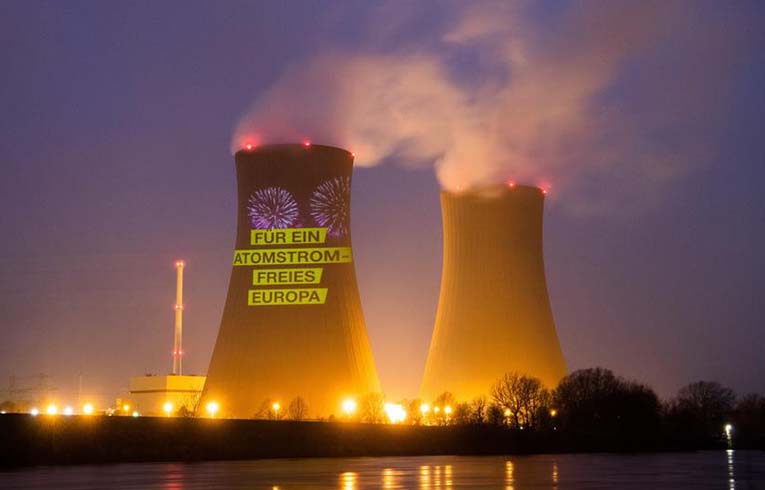Germany will shut down three of its last six nuclear reactors on Friday, as it speeds up its complete phasing out of nuclear energy to focus on renewables. According to a Reuters report, the remaining three reactors will stop producing energy by the end of 2022.
Firstly, the German government decided to speed up the phasing out of nuclear after Japan experienced its disastrous nuclear accident in Fukushima, when an earthquake and a tsunami destroyed the coastal plant. In fact, it was the world’s worst nuclear incident since Chernobyl.
Moreover, the reactors in question are the Brokdorf, Grohnde and Gundremmingen C, run by utilities E.ON and RWE. These will cease production on Friday after three and a half decades in operation.
In addition, the remaining reactors, the Isar 2, Emsland and Neckarwestheim II will go down by the end of 2022.
Despite the fact that nuclear energy is considered a clean and cheap source of energy, for Germany the phase-out is irreversible, as it faces ambitious climate change goals, and rising power prices. Kerstin Andreae, the head of energy industry association BDEW, said. “For the energy industry in Germany, the nuclear phase-out is final.”
Also recommended for you: Archaea Energy starts operations of massive RNG facility. Click here to read.
Germany aims to make renewables 80% of its energy mix
Furthermore, according to preliminary figures by BDEW, the six nuclear power plants contributed to around 12% of electricity production in Germany in 2021. At the same time, the share of renewable energy was almost 41%; with coal generating just under 28% and gas around 15%.
However, Germany aims to make renewables meet 80% of power demand by 2030 through expanding wind and solar power infrastructure. In fact, the new government, which plans to step up climate protection efforts, stood by the nuclear power phase-out in its coalition agreement.
On Wednesday, Economy and Climate Protection Minister Robert Habecksaid he did not see the anti-nuclear consensus weakening in Germany. Indeed, Environmental groups welcomed the move; but warned that 2022 was not the real end of the nuclear era in Germany.
Finally, Arne Fellermann, a manager at the BUND environmental group, told Reuters. “We have to say that there will still be uranium enrichment plants in Germany, like the one in Gronau. There is also a research reactor in Garching that still works with weapons-grade uranium.”


